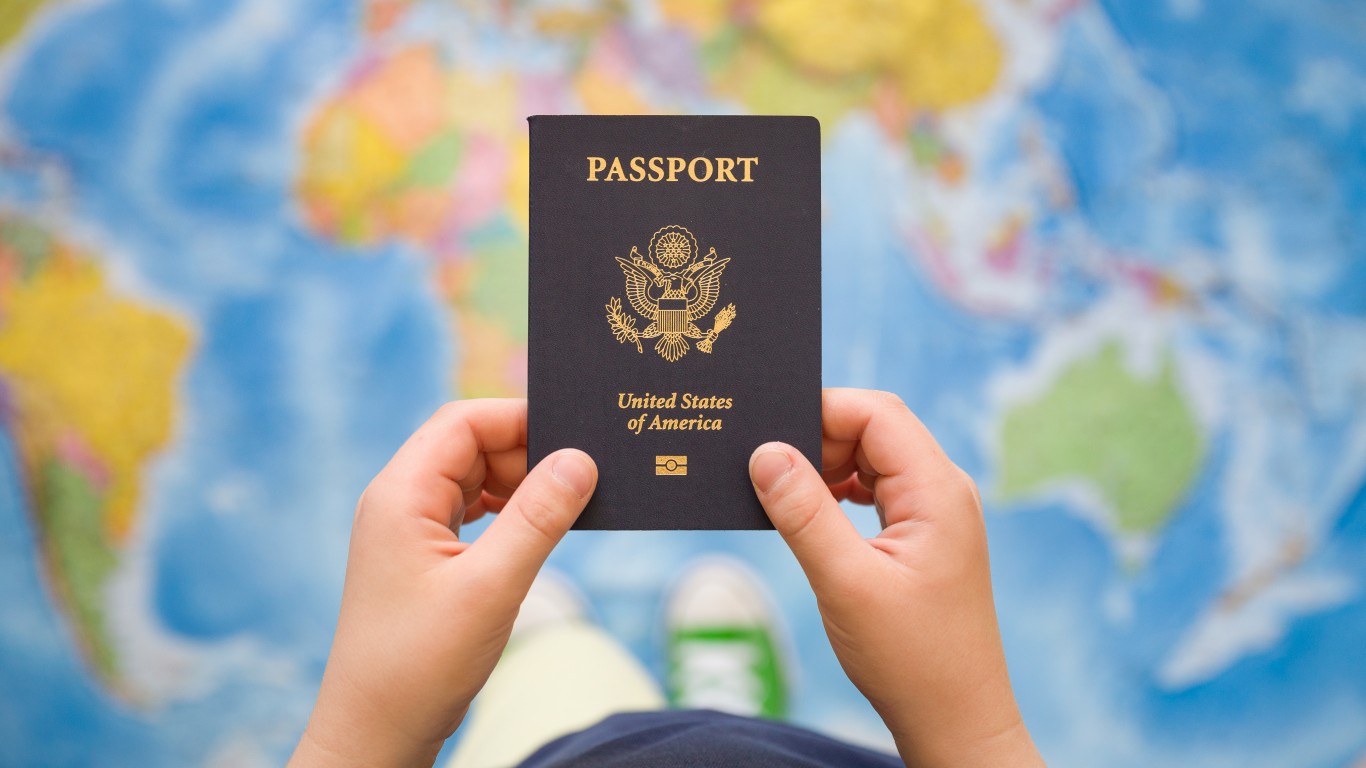
Planning summer overseas travel? The U.S. State Department warns all Americans to exercise precautions and be alert to the possibility of crime or violence directed toward foreigners. But there are 22 countries where the danger is so severe, the State Department has issued a Level 4 travel advisory: Do Not Travel. We’ve listed all of them below along with some of the specific problems there and the dangers travelers may face. This list will not only help you plan your leisure travel, but also where your international business activities or humanitarian work would be better conducted by locals as much as possible.
U.S. State Department Travel Advisory Levels

The United States ranks all countries and territories of the world in a 4-tier system from safest to most dangerous travel.
Level 1 – Exercise Normal Precautions
These are considered the safest countries to travel to. Travelers should exercise reasonable precautions such as remaining vigilant, keeping an eye on their belongings, not flashing money, and not drawing unwanted attention by being loud and obnoxious.
Level 2 – Exercise Increased Caution
Countries at this level are fairly safe, but in some areas, the chances of civil unrest, crime, or harassment of tourists may be increased. Travelers should avoid areas considered higher risk.
Level 3 – Reconsider Travel
At this level, visitors may face significant risks to their lives and property. For example, a natural disaster may have occurred that has disrupted basic services, supplies, and medical care.
Level 4 – Do Not Travel
This is the State Department’s highest threat level rating. It applies in situations of dire danger, such as war, extreme terrorism threats, or armed rebellions. The U.S. government may not be able to assist citizens endangered in these countries.
Each of the following countries is ranked Level 4 by the U.S. State Department as of April 2024.
1. Afghanistan
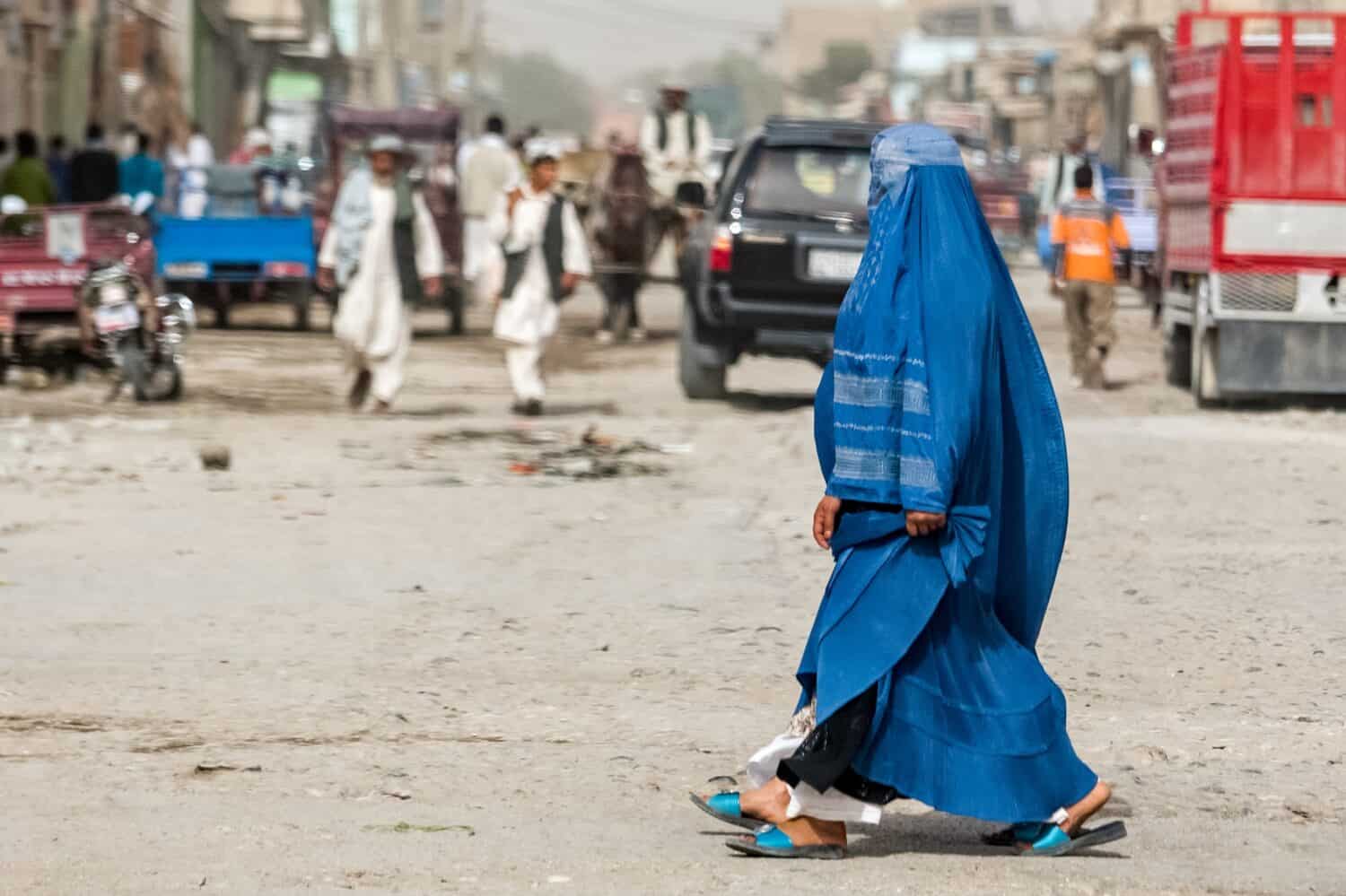
Problems: With the departure of American troops in 2021, the Taliban retook control of Afghanistan. The new government is guilty of human rights abuses against its own citizens and foreigners. Additionally, the country suffers from the effects of drought, earthquakes, mines and unexploded ordinance, and shortages of medical supplies and other necessities.
Risks: Terrorism, risk of wrongful detention, kidnapping, and crime.
2. Belarus

Problems: Belarus is allied with Russia and has been used as a staging ground in the Russian invasion of Ukraine. While it is not directly involved in the war, it could become so in the future. Poor relations with the United States mean that U.S. citizens could be detained or harassed there.
Risks: Russian military buildup, arbitrary law enforcement, potential civil unrest, risk of detention.
3. Burkina Faso
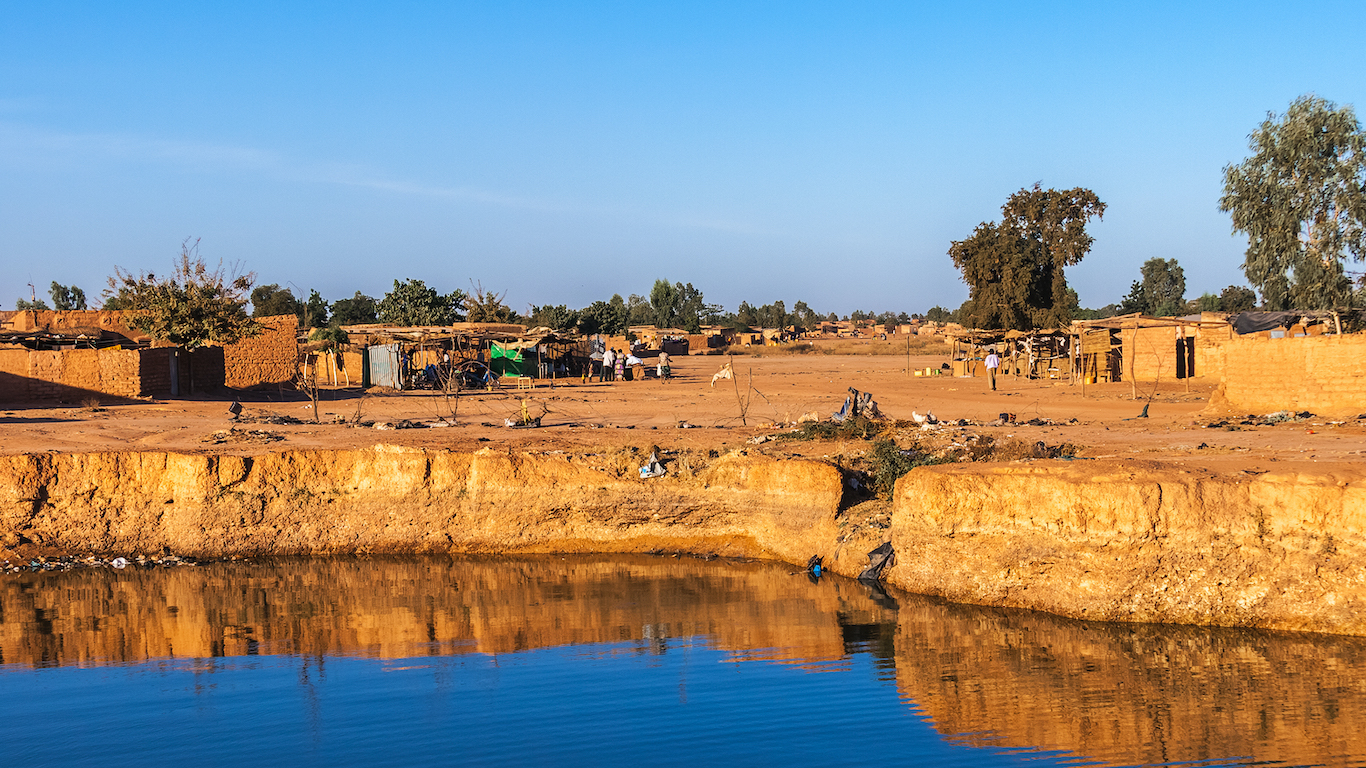
Problems: Al-Qaeda and the Islamic State are active in Burkina Faso. A state of emergency is in effect in areas of the country bordering Mali.
Risks: Terrorism, crime, and kidnapping.
4. Central African Republic
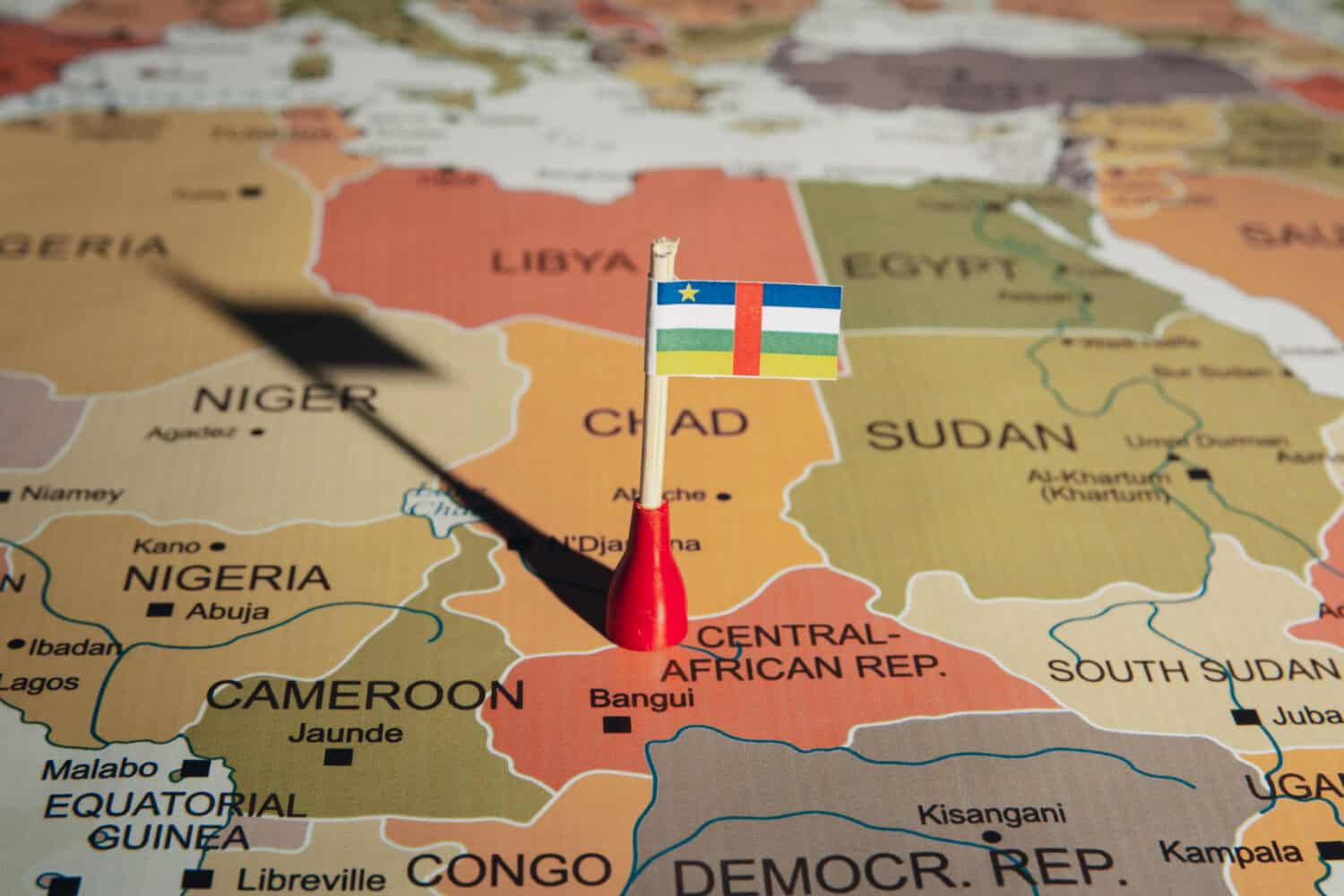
Problems: The Central African Republic has weak authority over its territory, with large swaths of the country under the control of armed rebel groups. Demonstrations, violence, and unexpected closures of airports, roads, and borders are not uncommon.
Risks: Crime, civil unrest, and kidnapping.
5. Haiti
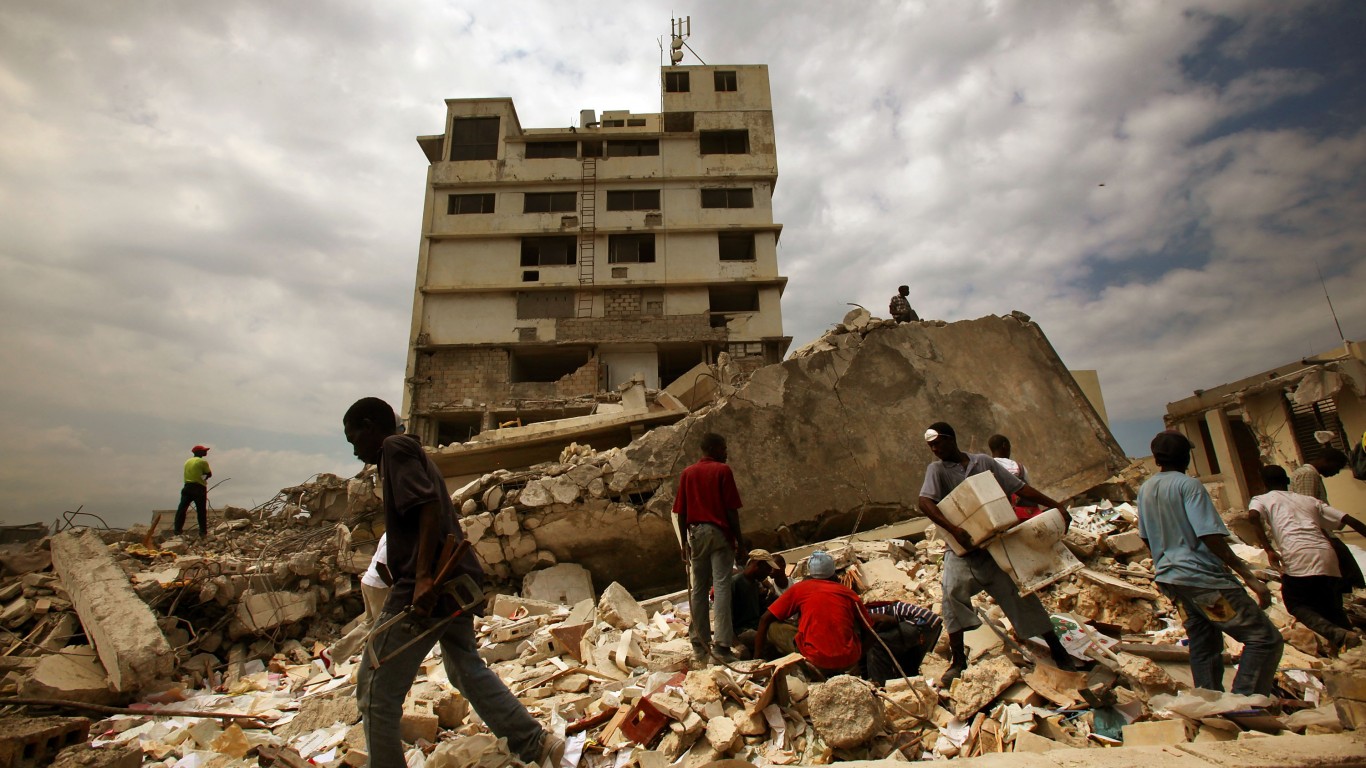
Problems: Haiti has perennial problems with natural disasters and civil unrest. Armed gangs roam the country and have been known to wait near the airport to hijack vehicles with newly arrived foreigners.
Risks: Kidnapping, crime, civil unrest, and poor health care infrastructure.
6. Iran
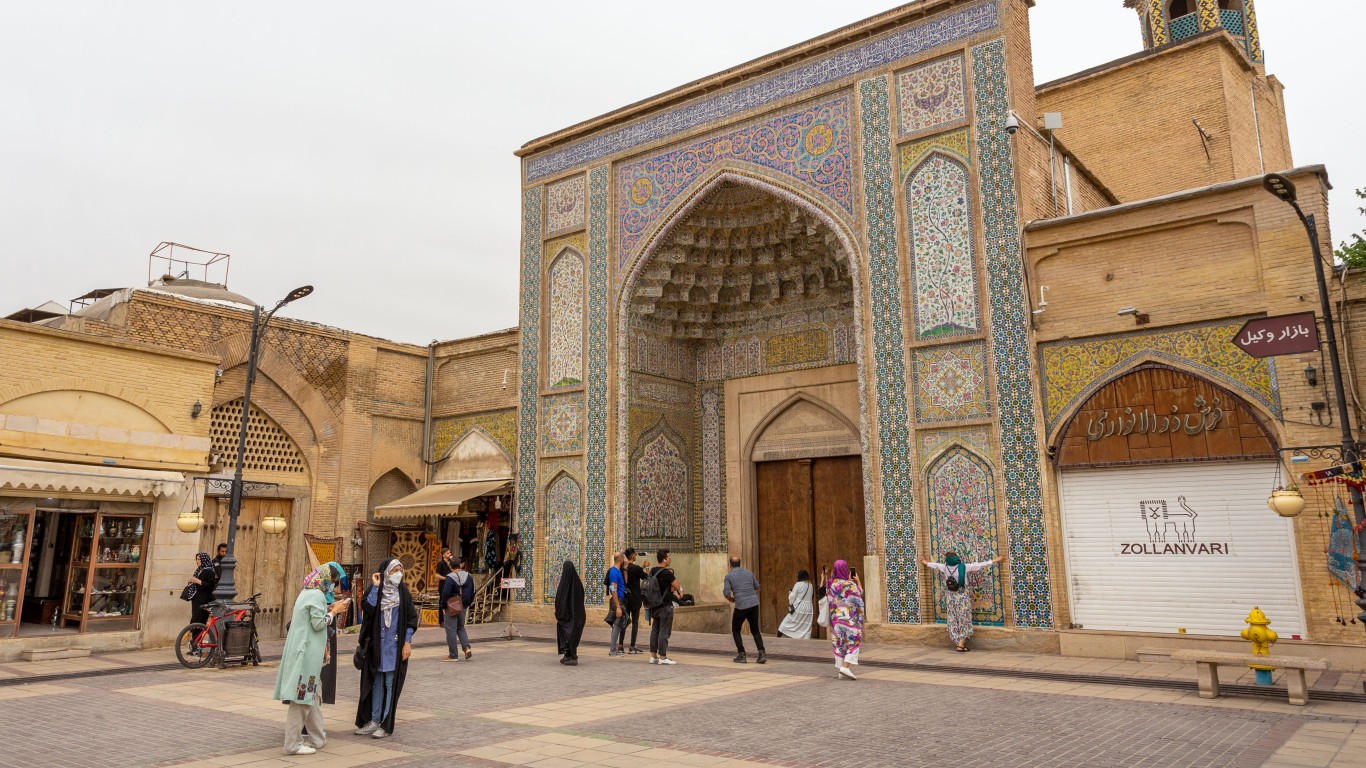
Problems: Iran is involved in regional power struggles with Israel, Saudi Arabia, and the United States. The country’s President was recently killed in a helicopter crash. It is still unclear how this might impact the stability of the country. Some regions of Iran have separatist movements and major cities have seen protests over civil rights issues in the recent past.
Risks: Risk of terrorism, civil unrest, kidnapping, and the arbitrary arrest of U.S. citizens.
7. Iraq
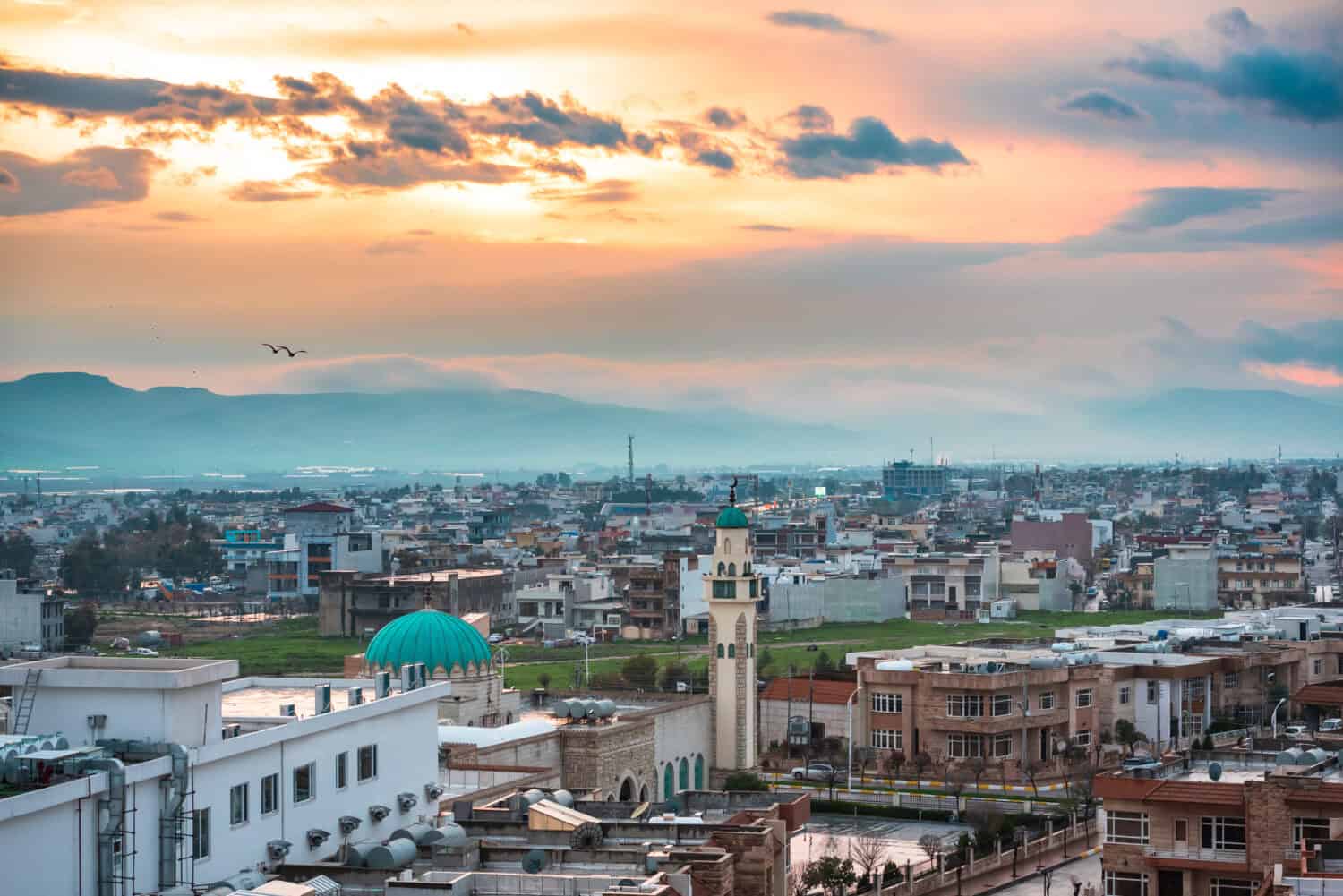
Problems: Iraq remains unstable in the long-term aftermath of two wars with a coalition of Western and regional powers. There are separatist movements in the north and south of the country. Terrorists and weapons pass freely through the country from Iran to Syria, Lebanon, and the Palestinian territories. From time to time the U.S. and other powers carry out missile or air strikes against terrorists based in the country.
Risks: Terrorism, kidnapping, armed conflict, and civil unrest.
8. Israel
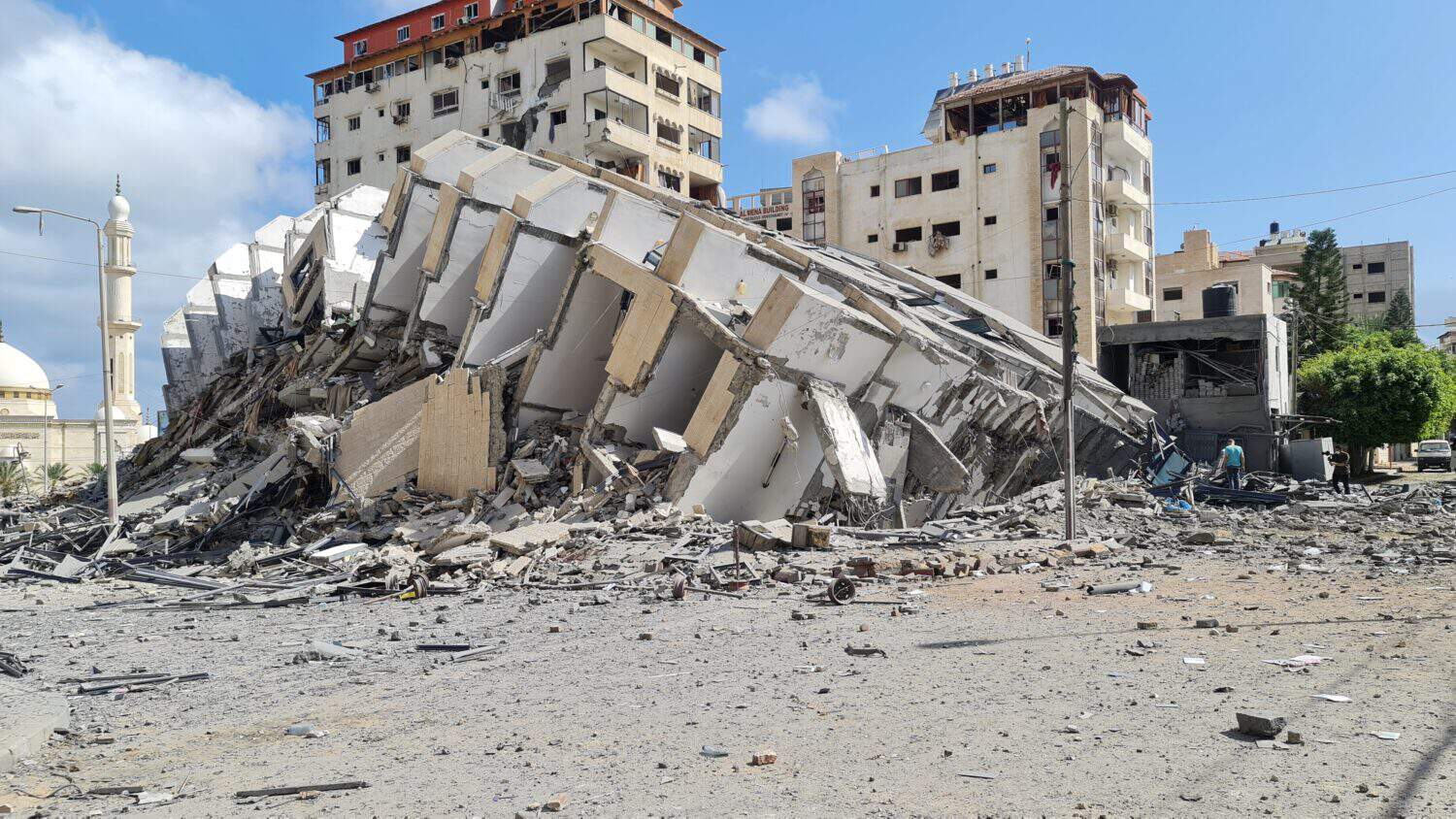
Problems: Following a brutal terrorist attack sponsored by Hamas in October 2023, Israel launched an intense and still ongoing military operation to destroy the organization in occupied Gaza. Approximately 35,000 people have been killed. Medical care and basic necessities are in short supply. The State Department recommends that anyone going there leave DNA samples on file with their doctor in case they are needed for identification of their remains.
Risks: Terrorism and armed conflict.
9. Libya
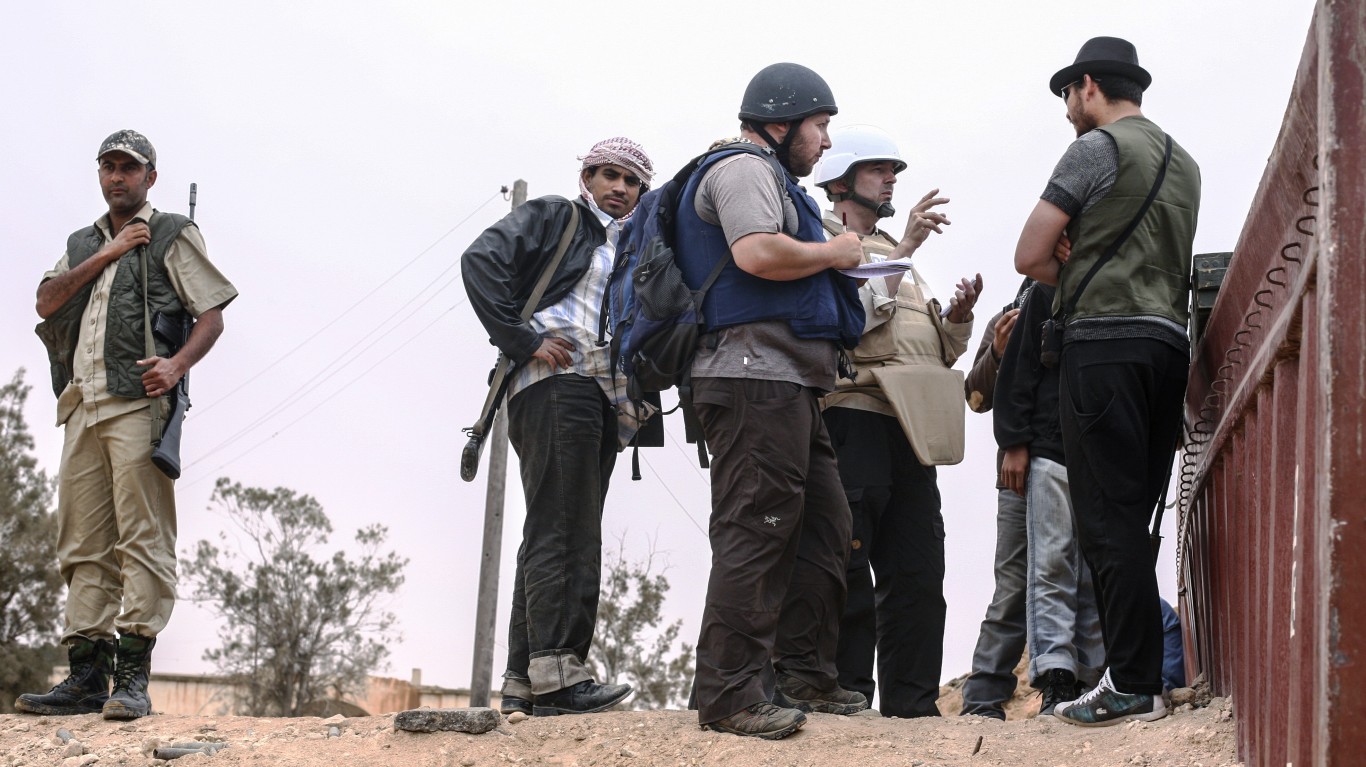
Problems: Since the ouster of Libyan dictator Muammar Gaddafi in 2011, Libya has been shattered by civil war with rival power centers in the major cities of Tripoli and Benghazi. The country has an uneasy peace at the moment but is not safe for foreigners.
Risks: Crime, terrorism, civil unrest, kidnapping, and armed conflict.
10. Mali
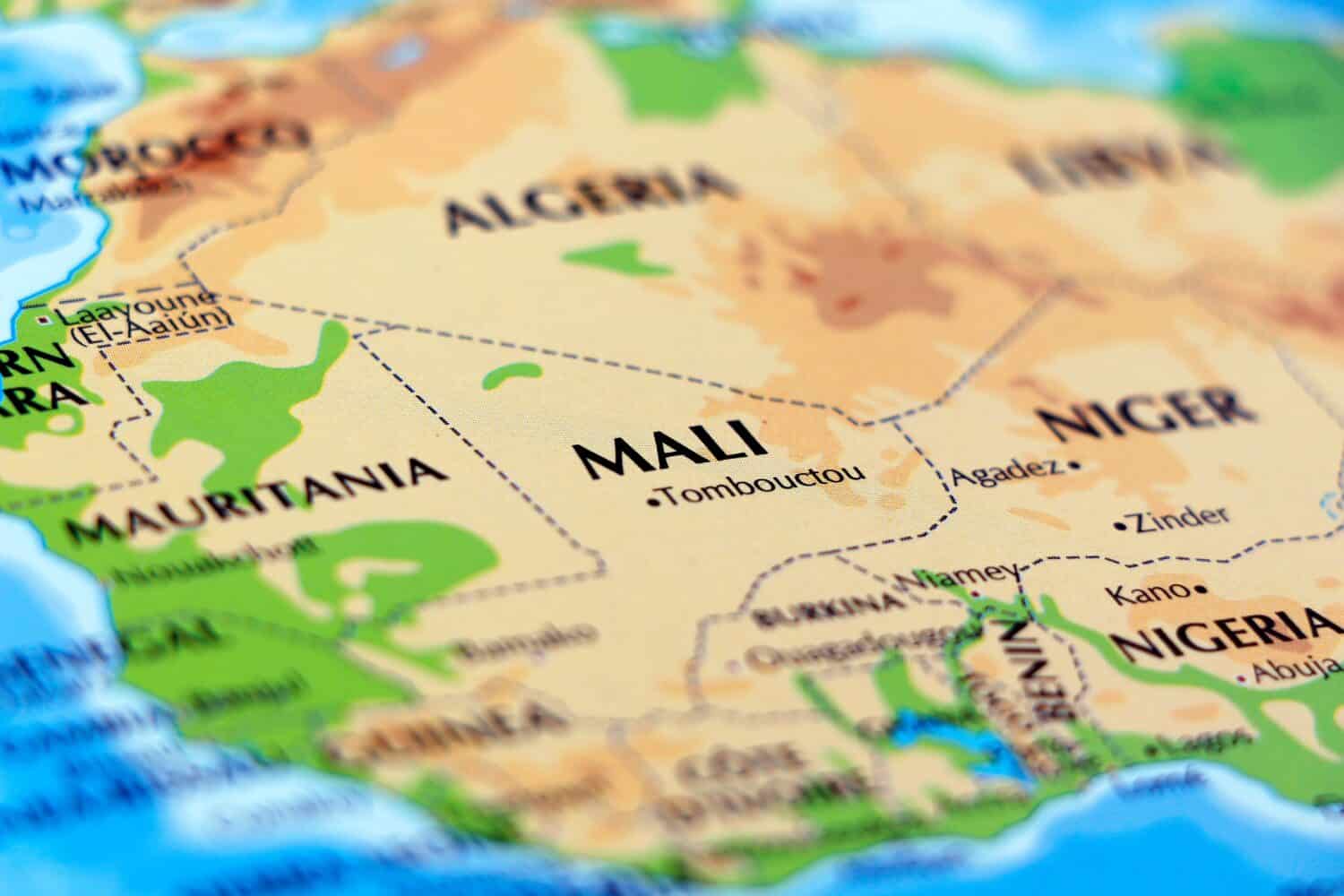
Problems: In the past two decades, Mali has been through civil wars and military takeovers. It continues to suffer from terrorism targeting foreigners, government facilities, and places of worship.
Risks: Crime, terrorism, and kidnapping.
11. Mexico

Problems: The State Department issues travel advisories for individual states of Mexico. The country is mostly safe for tourists but has some separatist movements in the south and problems with human trafficking and drug cartels.
Risks: Crime is a risk in Guerrero state. Crime and kidnapping are dangers in the states of Colima, Michoacan, Sinaloa, Tamaulipas, and Zacatecas.
12. Myanmar
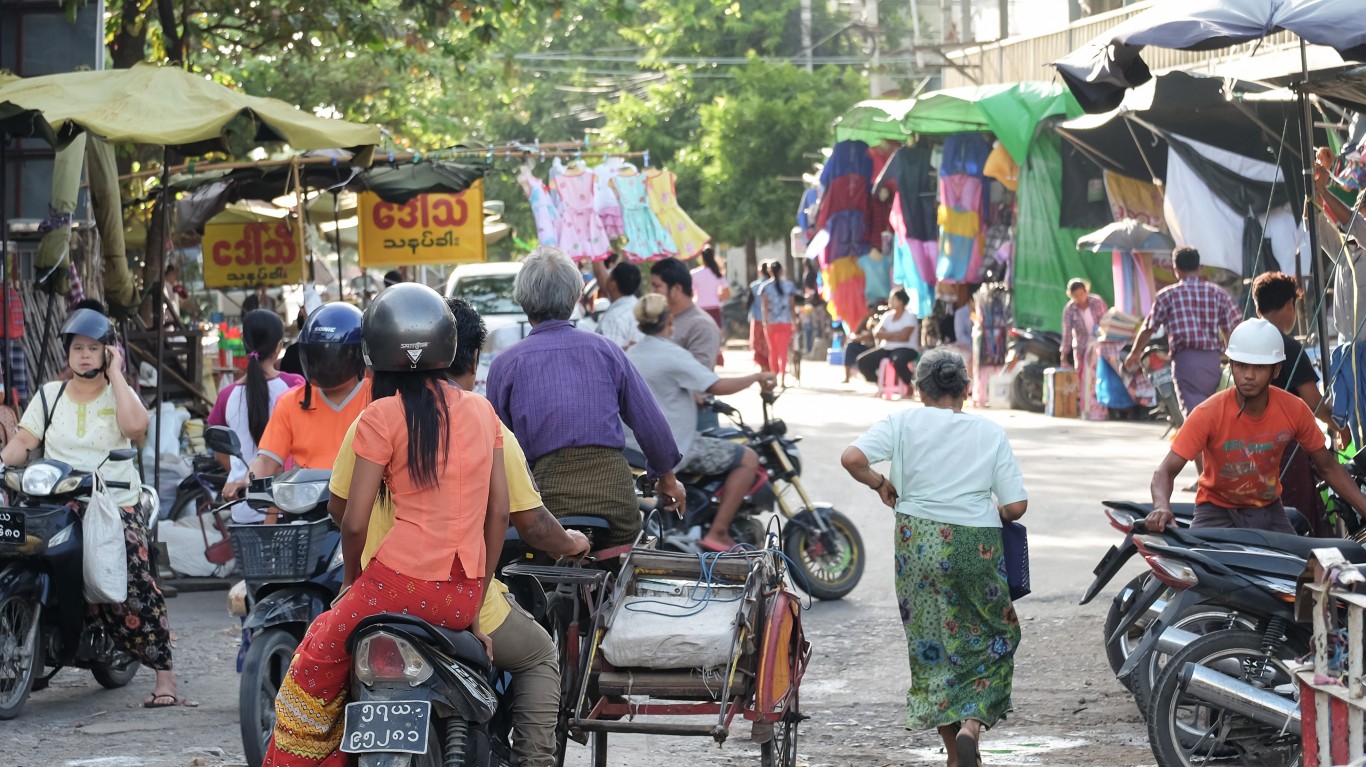
Problems: Under military rule for 3 years, Myanmar is fighting rebellions in various regions. It has come under international criticism for human rights abuses and harsh crackdowns on protestors and dissidents.
Risks: Civil unrest, armed conflict, arbitrary enforcement of local laws, limited and/or inadequate healthcare and emergency medical resources, and areas with land mines and unexploded ordnances.
13. North Korea
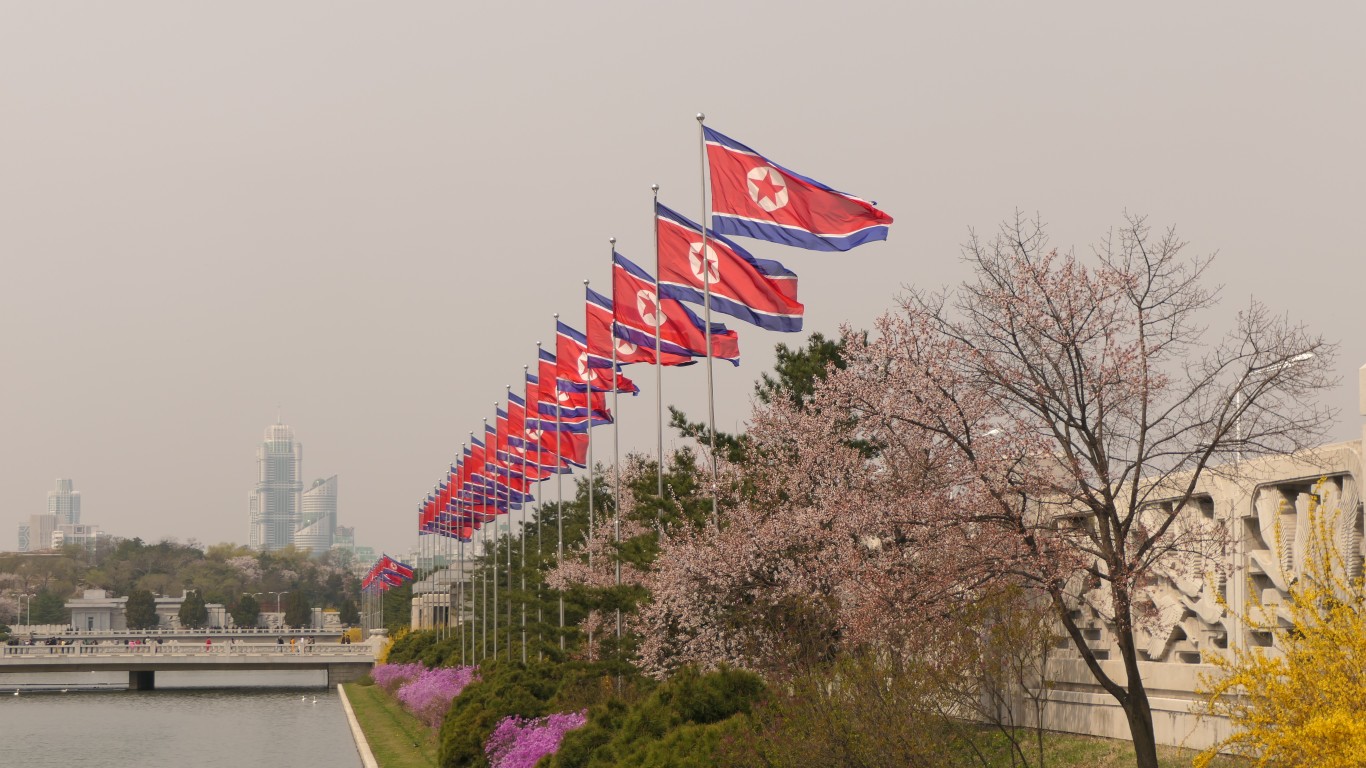
Problems: The reclusive government of North Korea uses its rivalry with South Korea and the United States as a means of staying in power despite the harsh deprivation of the country’s people. North Korea has a nuclear arsenal and is actively developing long-range missile technology to threaten the United States. Foreign citizens have been detained for long periods of time, severely mistreated, and used as negotiating bargaining chips.
Risks: Risk of arrest and long-term detention.
14. Russia

Problems: Russia is under extreme economic sanctions for its 2022 invasion of Ukraine, which is really a continuation of the creeping annexation it launched with the takeover of Crimea in 2014. International banking services are no longer available, and flights are sporadic. Because of poor relations with the United States and other Western countries, the danger of unlawful harassment and detention of innocent visitors is real.
Risks: Potential for harassment of U.S. citizens, wrongful detention, arbitrary law enforcement, and the possibility of terrorism.
15. Somalia
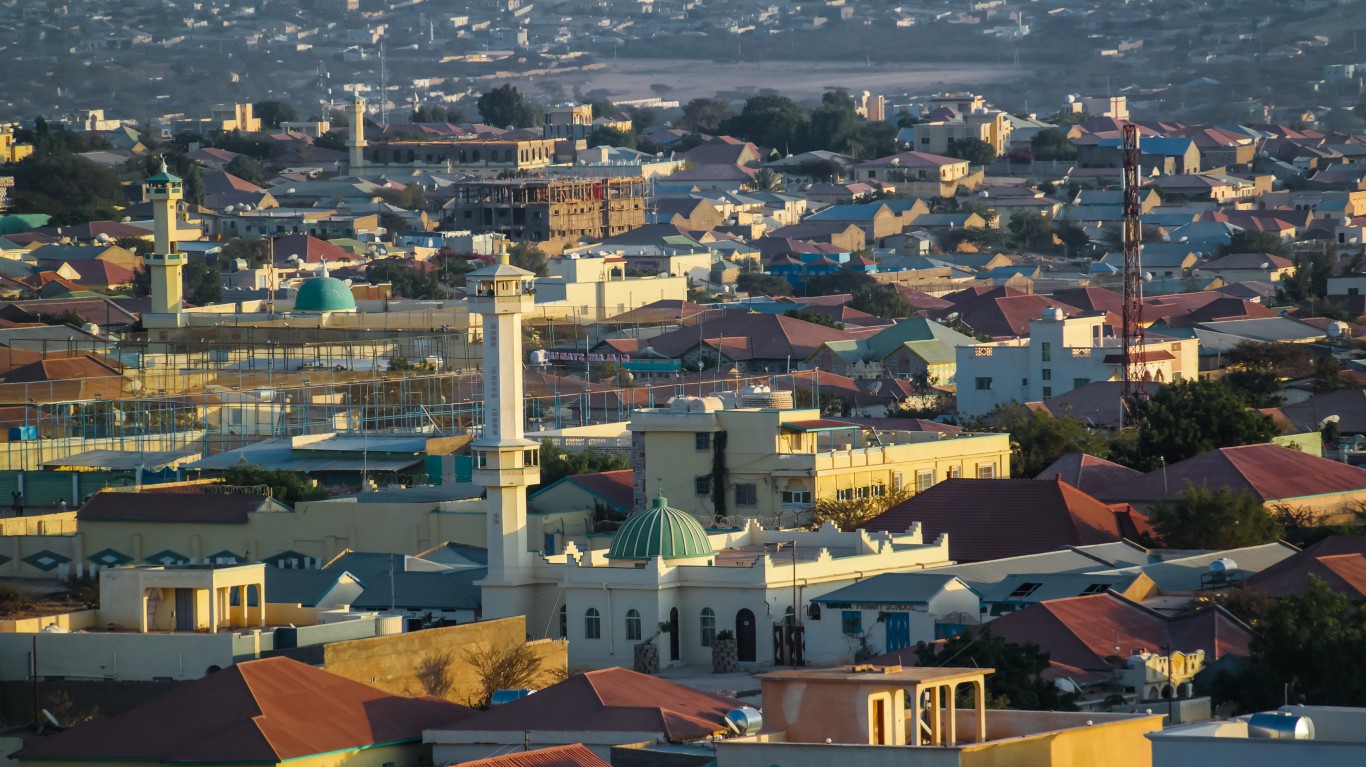
Problems: Somalia has been unstable for decades, with regions of the country under the control of regional warlords. Piracy is a particular problem along its long Indian Ocean coastline at the mouth of the busy Red Sea. Terrorism is common and often directed at foreigners.
Risks: Crime, terrorism, civil unrest, health issues, kidnapping, and piracy.
16. South Sudan
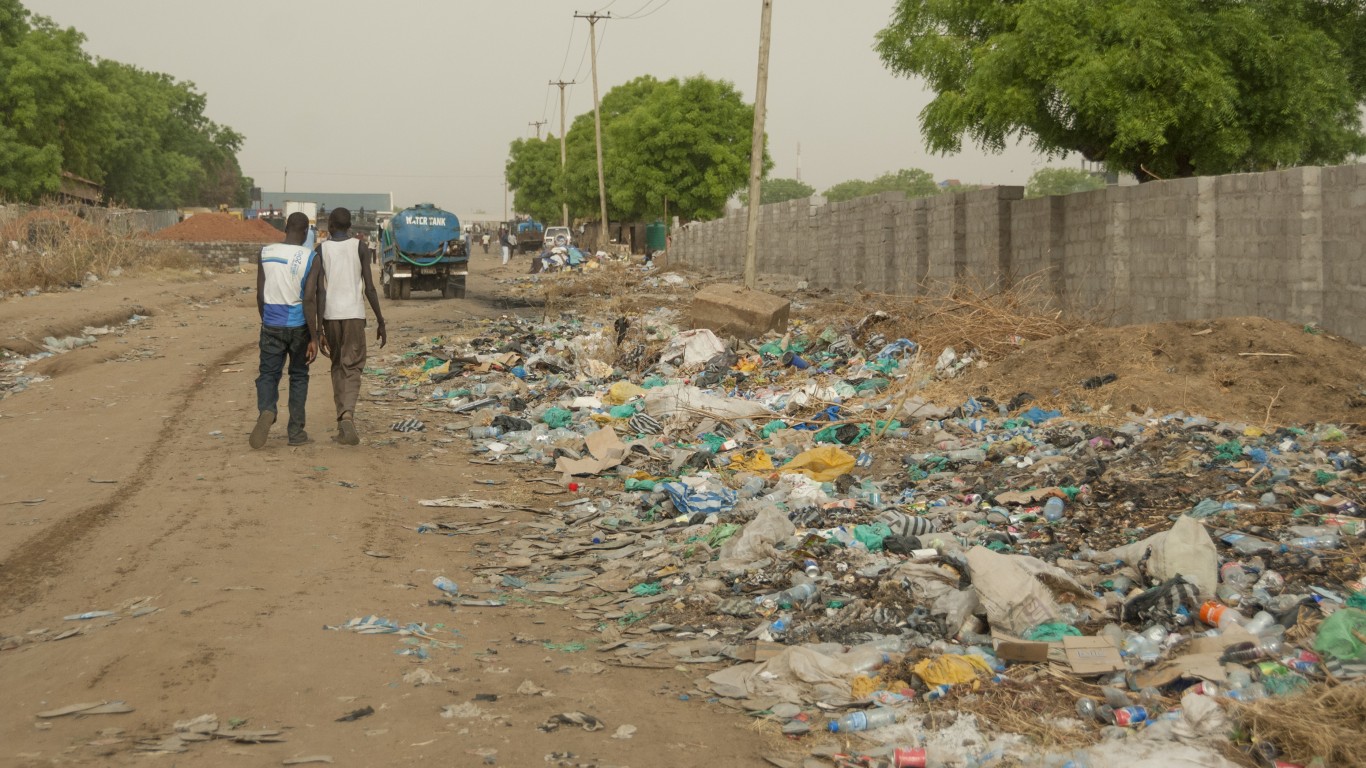
Problems: Independent for only 13 years, South Sudan struggles with endemic crime and civil unrest. Widespread access to firearms is one of the legacies of decades of civil war. The central government’s control of the country is tenuous, with regions fighting against one another and the central authorities.
Risks: Crime, kidnapping, and armed conflict.
17. Sudan
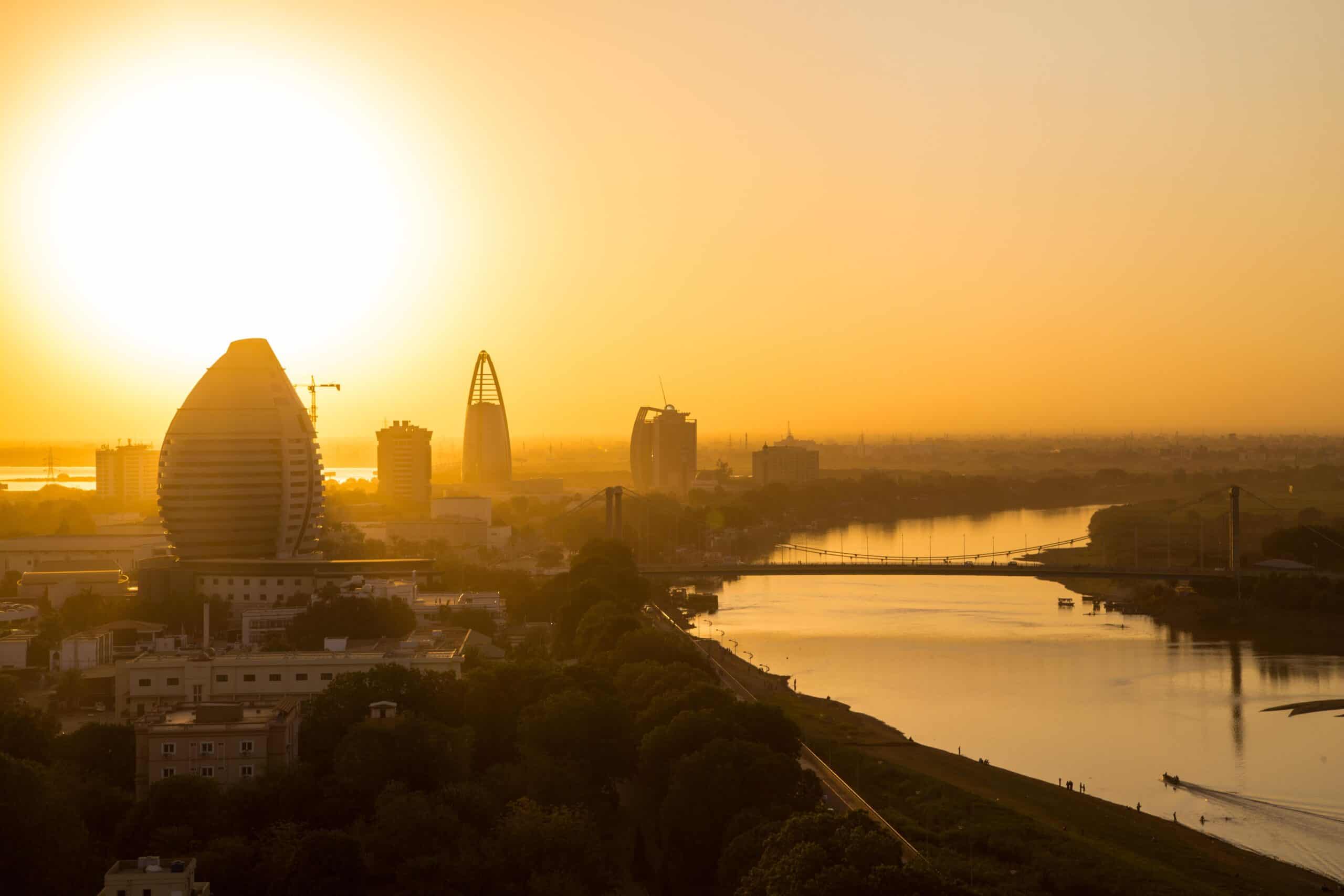
Problems: Civil war in Sudan already split off the southern region of the country into the independent nation of South Sudan. This did not bring peace to the remainder of the country, as factions have continued to fight the central government. Civil unrest, natural disasters, and a refugee crisis are just the tip of the iceberg in Sudan’s severe problems.
Risks: Armed conflict, civil unrest, crime, terrorism, and kidnapping.
18. Syria

Problems: Syria’s civil war continues with dictator Bashar Al-Assad apparently firmly in power but unable to extend his control over all parts of the country. Syria’s porous borders allow the movement of terrorists and materiel from Iran and Iraq to Lebanon and the Palestinian territories.
Risks: Terrorism, civil unrest, kidnapping, armed conflict, and risk of unjust detention.
19. Ukraine

Problems: Russia is continuing its invasion of Ukraine despite international ostracism and severe economic sanctions. While active fighting is concentrated in the east, bombings and missile strikes happen randomly in population centers all over the country.
Risks: Active armed conflict.
20. Venezuela
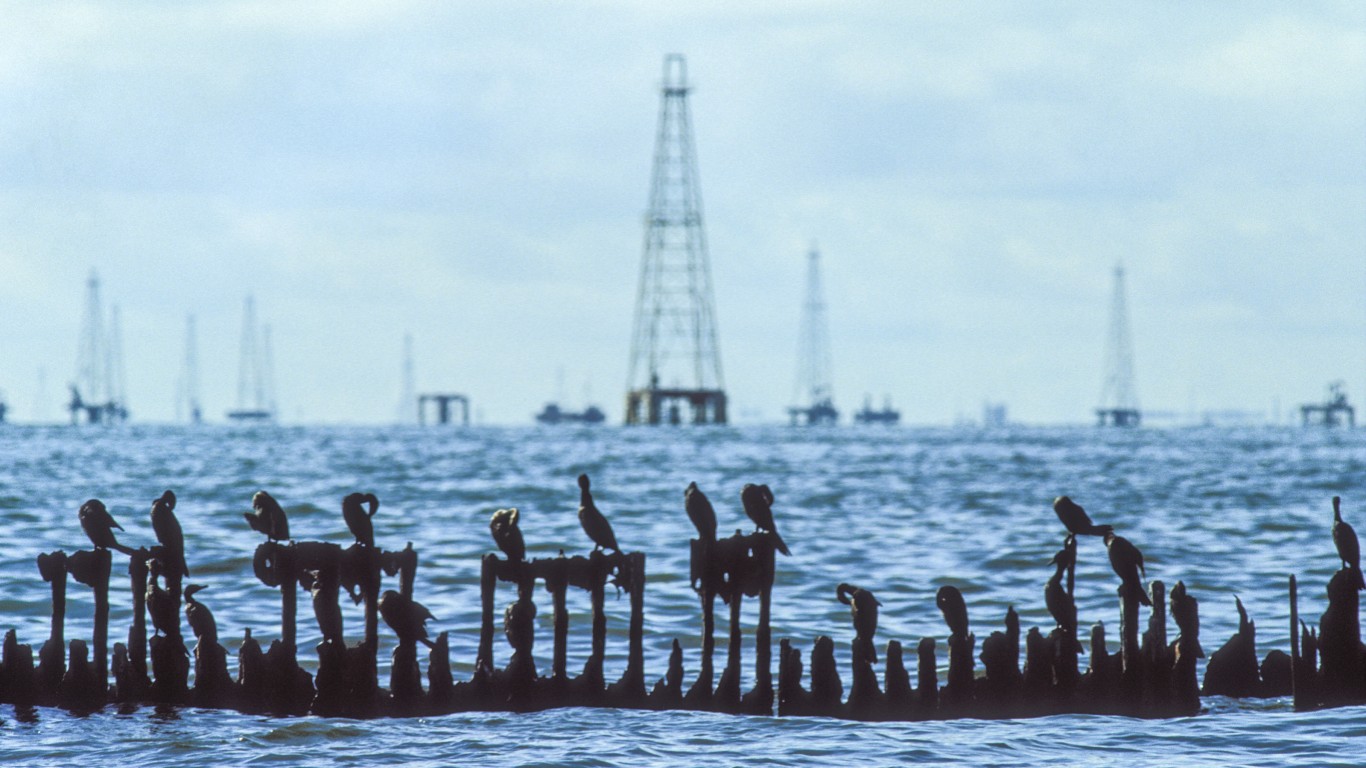
Problems: Venezuela is under socialist leadership and pursues an anti-American agenda. Economic problems and political repression in the country have led to a mass exodus of millions of people to neighboring countries and the United States.
Risks: Crime, Civil unrest, kidnapping, arbitrary law enforcement, wrongful detentions, terrorism, and poor health infrastructure.
21. Yemen
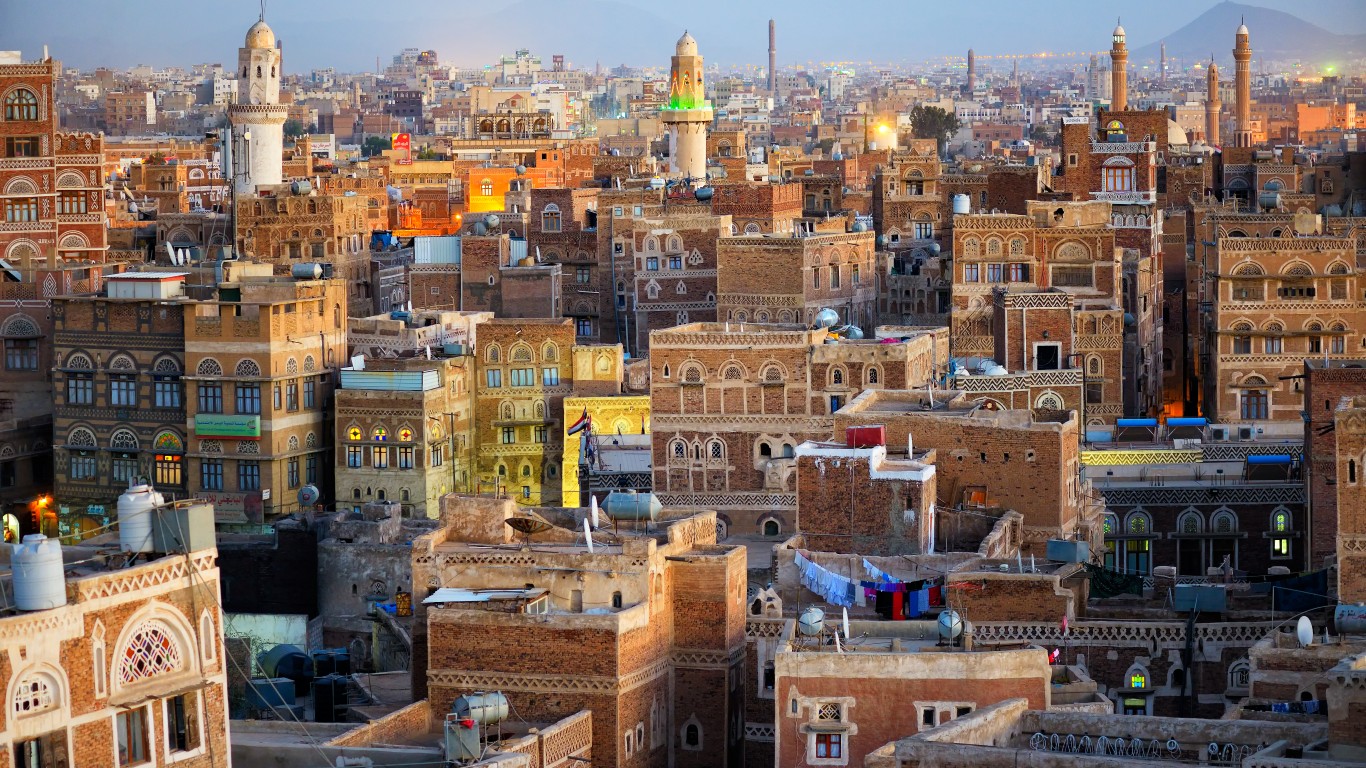
Problems: Yemen continues to be involved in civil war and is a hotbed of terrorism, crime, and human trafficking. The United States and the United Kingdom have carried out airstrikes in Yemen in retaliation for missiles fired at Red Sea shipping.
Risks: Terrorism, civil unrest, crime, health risks, kidnapping, armed conflict, and landmines.
Resources to Keep You Safe

Regardless of where you travel outside the United States, here are some of the U.S. State Department’s resources to keep you safe:
- Travel Advisories – Find out the threat level to foreigners and the local conditions to be aware of for every country and territory in the world.
- Smart Traveler Enrollment Program (STEP) – Enables the U.S. government to contact you in the event of an emergency with safety alerts and evacuation instructions if necessary.
- U.S. Embassies and Consulates – Contact information and Google maps links for every country where they are available.
- Lost or Stolen Passports – Everything you need to know about replacing your passport abroad.
Travel Cards Are Getting Too Good To Ignore (sponsored)
Credit card companies are pulling out all the stops, with the issuers are offering insane travel rewards and perks.
We’re talking huge sign-up bonuses, points on every purchase, and benefits like lounge access, travel credits, and free hotel nights. For travelers, these rewards can add up to thousands of dollars in flights, upgrades, and luxury experiences every year.
It’s like getting paid to travel — and it’s available to qualified borrowers who know where to look.
We’ve rounded up some of the best travel credit cards on the market. Click here to see the list. Don’t miss these offers — they won’t be this good forever.
Thank you for reading! Have some feedback for us?
Contact the 24/7 Wall St. editorial team.




